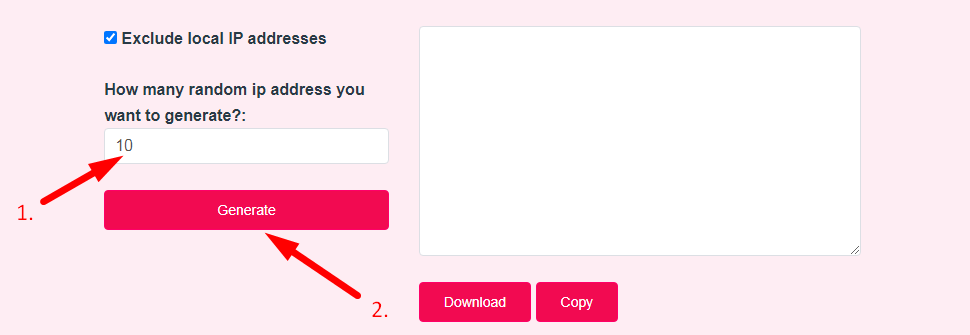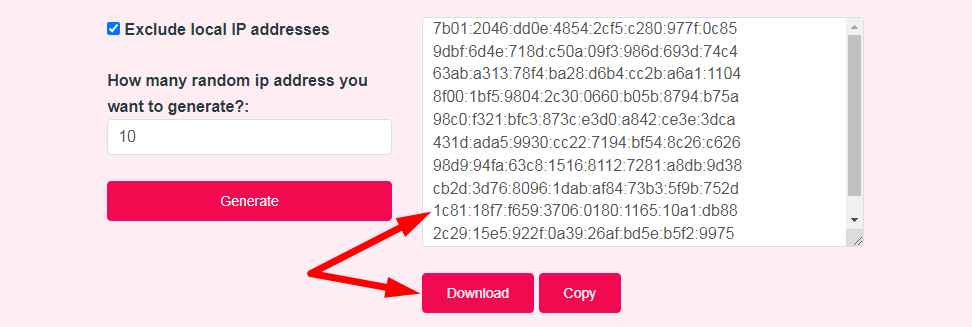Random IPv6 Generator
Do you need to generate a random ipv6 address for your app or tool? With our IP generator you can generate up to 1000 fake IP addresses in a second.
Exclude local IP addresses
How many random ip address you want to generate?:
How many random ip address you want to generate?:
How to use this Random IPv6 Generator Tool?
How to use Yttags's Random IPv6 Generator?
- Step 1: Select the Tool

- Step 2: Enter The Following And Click On Generate Button.

- Step 3: Check Your Random IPv6 Generator Result

The random IP(IPv4/IPv6) address generator online tool supports the generation of random IPv4 addresses and IPv6 addresses, and can specify the generated count, address range and other parameters.
If you want to link to Random Ipv6 Generator page, please use the codes provided below!

FAQs for Random IPv6 Generator
What is a Random IPv6 Generator?
A Random IPv6 Generator is a tool that creates random IPv6 (Internet Protocol version 6) addresses, providing a means to generate diverse and unique IPv6 addresses for testing or other purposes in networking and IT applications.
How many unique addresses can we generate using IPv6?
IPv6 uses 128-bit (2128) addresses, allowing 3.4 x 1038 unique IP addresses. This is equal to 340 trillion trillion trillion IP addresses. IPv6 is written in hexadecimal notation, separated into 8 groups of 16 bits by the colons, thus (8 x 16 = 128) bits in total.
Which IPv6 address is automatically generated?
Hosts automatically create IPv6 addresses by combining the subnet prefix with an interface ID that is generated from an interface's MAC address. In the absence of routers, a host can generate only link-local addresses. Link-local addresses can only be used for communication with nodes on the same link.
How many IPv6 addresses should a device have?
One for each device. Up to two, one IPV4 address, and one IPV6 address.
What is the maximum length of IPv6 address?
An IPv6 address have 8 16-bit fields, each in maximum 4 hex number format, separated by 7 : characters. That is 128 / 16 * 4 + 7 , which you can calculate using dc(1) on the command line dc -e "128 16 / 4 * 7 + p , if installed. That will give you the maximum of 39 characters.